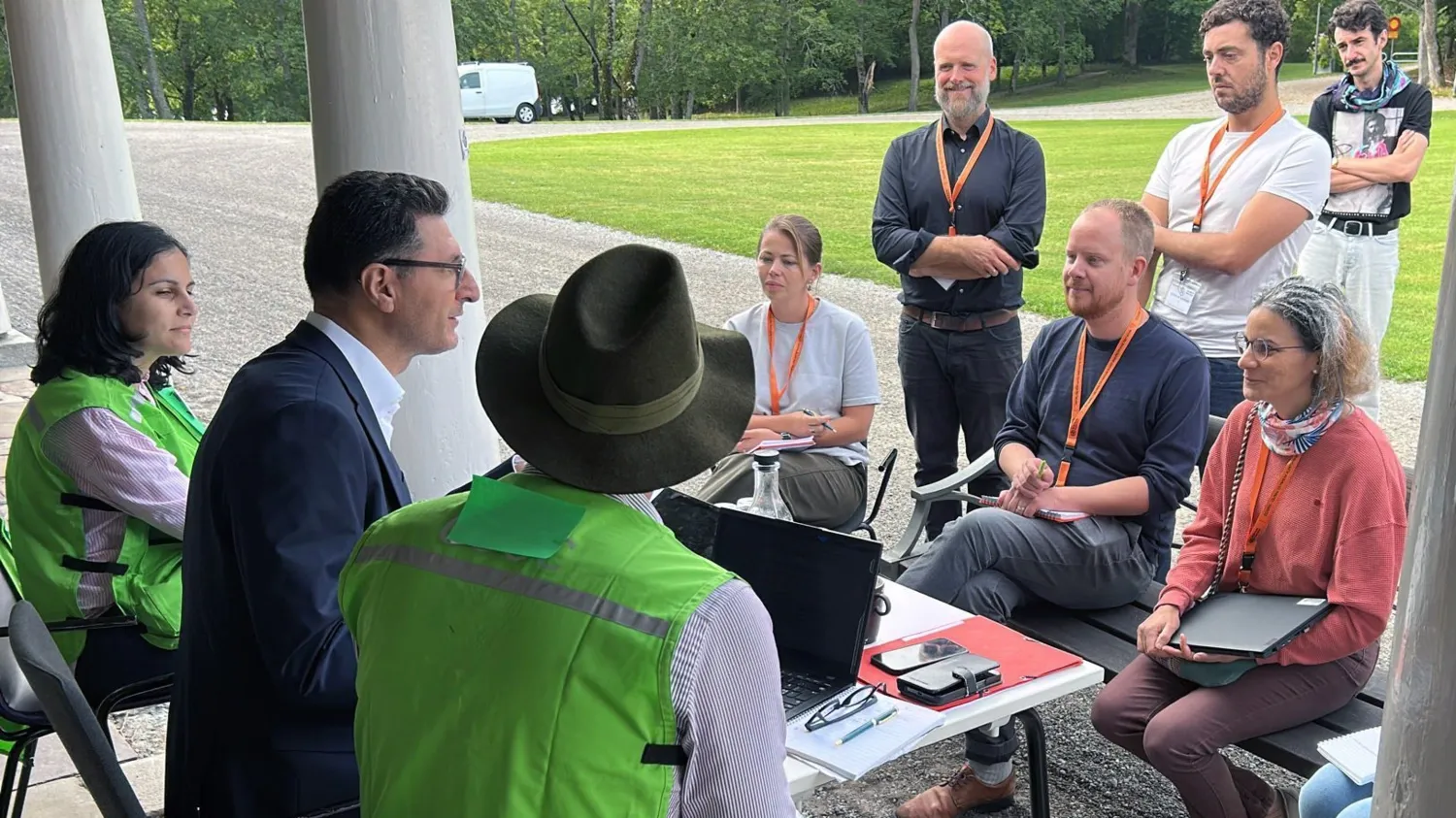Training for health crises makes us better prepared

During the ongoing Preparedness Week (Beredskapsveckan), the importance of being ready for crises is highlighted. When infectious diseases spread rapidly, it takes more than medical expertise and knowledge – it also requires the ability to collaborate under pressure. Hedvig Glans, expert coordinator at the Centre for Health Crises, recently participated in an international exercise focused on exactly this.
The Centre for Health Crises at Karolinska Institutet brings together expertise in areas related to preparedness and the management of various types of health crises. Hedvig Glans is the expert coordinator for outbreak preparedness and response. She is an infectious disease physician specializing in the care of patients with contagious infections and tropical medicine, and also conducts research in the field.
Outbreak preparedness and response is about being ready to act when infectious diseases such as COVID-19, avian influenza, Ebola – or something unknown – emerge. In Sweden, this preparedness exists in our hospitals, with the Public Health Agency responsible for coordinating infection control at the national level, and infectious disease control doctors in the regions. Sweden is also part of international systems involving organizations like the European Centre for Disease Prevention and Control (ECDC) and the World Health Organization (WHO), which work with infection control and global surveillance, and can mobilize personnel and resources to affected countries when needed. Together, this creates a system for preparedness and response at local, regional, national, and global levels.
Scenario training provides personal insights

But preparedness is also about us as individuals. We are the ones who must act when something happens.
Hedvig Glans recently returned from the course Outbreak response scenario training. It is an international training program aimed at preparing experts who may be deployed when infectious disease outbreaks occur somewhere in the world. The course is organized by ECDC and the European Health Task Force (EUHTF), in collaboration with the Global Outbreak Alert and Response Network (GOARN).
The training does not focus on medical management, as one might expect, but rather on preparing participants for what it’s like to be on assignment and how to handle various situations that may arise. Once deployed, you must quickly start working in a team with people you've never met before – individuals with different backgrounds, working styles, and cultures – and deliver results. So how do you do that under pressure?
By practicing in various fictional but realistic scenarios and then reflecting together, participants gained insight into both their own and others’ reactions, and gradually replaced them with more constructive ways of acting.
“It was interesting to see how we all behaved during the scenario exercises. I especially noticed that we initially completely forgot basic courtesy. Normally, you would always introduce yourself when entering a room, but we suddenly skipped the pleasantries and went straight to the task. That would never work – trust and personal relationships are crucial for any collaboration. Becoming aware that this is how one might react under pressure was very useful,” says Hedvig Glans.
Hedvig herself leads preparedness exercises for hospitals and regions and sees great value in this type of training.
“We often forget the social skills when we talk about preparedness, but it’s not just about what we as experts know – it’s also about how well we can apply that knowledge in real situations. I’ll try to incorporate these kinds of elements into my own exercises going forward,” Hedvig adds.
Expanded collaboration with ECDC
The main reason for Hedvig’s participation was that GOARN and ECDC see a need for the training to be offered regularly in Europe. For that, a course leadership is needed that can both adapt and deliver the training in the future, and the idea is that the Centre for Health Crises will be able to contribute.
“At the same time, we also learn new formats that we can bring home and use in other contexts. It’s a great way to build preparedness,” Hedvig concludes.
About GOARN and expert deployment
GOARN is a WHO network with over 310 technical institutions and networks worldwide that respond to acute public health crises by mobilizing personnel and resources to affected countries. The network is coordinated by an operational support team at WHO headquarters in Geneva and governed by a steering committee. The goal is to quickly and effectively help prevent and control outbreaks of infectious diseases and other public health emergencies when assistance is requested.
The Centre for Health Crises is one of five Swedish partner organizations to GOARN and deploys experts to ongoing health crises around the world. Read more about the centre’s work with expert deployment.
Preparedness week
Preparedness week (Beredskapsveckan) is a themed week and communication initiative held during week 39 each year. The week is led by the Swedish Civil Contingencies Agency (MSB) and carried out by many actors simultaneously to strengthen the resilience of the population.
The theme for 2025 is You are part of Sweden’s total defence.
